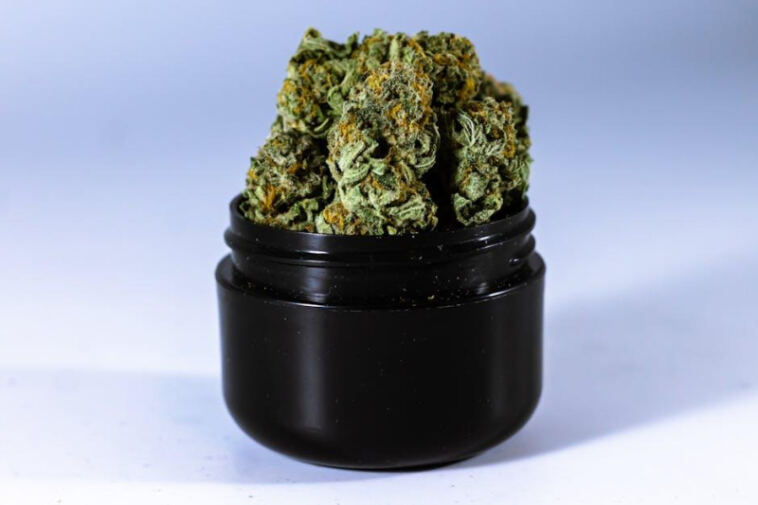- Like
- SHARE
- Digg
- Del
- Tumblr
- VKontakte
- Flattr
- Buffer
- Love This
- Save
- Odnoklassniki
- Meneame
- Blogger
- Amazon
- Yahoo Mail
- Gmail
- AOL
- Newsvine
- HackerNews
- Evernote
- MySpace
- Mail.ru
- Viadeo
- Line
- Comments
- Yummly
- SMS
- Viber
- Telegram
- JOIN
- Skype
- Facebook Messenger
- Kakao
- LiveJournal
- Yammer
- Edgar
- Fintel
- Mix
- Instapaper
- Copy Link
In a world where trauma often lingers long after the initial wound has healed, hope can be a powerful ally in the journey toward recovery. For those suffering from the debilitating effects of post-traumatic stress disorder (PTSD), the healing properties of cannabis have emerged as a beacon of light in the darkness. Join us as we explore the transformative benefits of this controversial plant in alleviating the symptoms of PTSD and restoring hope to those who have long struggled in its shadow.
Understanding PTSD and its Impact on Mental Health
Individuals with post-traumatic stress disorder (PTSD) often experience debilitating symptoms that impact their mental health and overall well-being. From intrusive memories to avoidance behaviors, the effects of PTSD can be long-lasting and challenging to manage. Thankfully, emerging research suggests that cannabis may offer potential benefits for those struggling with PTSD.
Cannabis has been shown to have a calming effect on the nervous system, helping to reduce anxiety and promote relaxation. For individuals with PTSD, this can be particularly beneficial in managing symptoms such as hypervigilance and hyperarousal. Additionally, certain compounds in cannabis, such as CBD, have been found to have anti-inflammatory and neuroprotective properties, which may help to promote overall mental health.
It’s important to note that while some individuals may find relief from using cannabis for PTSD, it is not a one-size-fits-all solution. It’s crucial to consult with a healthcare provider before incorporating cannabis into your treatment plan, as it may not be suitable for everyone and could potentially have adverse effects. With that said, the potential benefits of cannabis for PTSD offer a glimmer of hope for those seeking alternative treatment options.
Exploring the Science Behind Cannabis as a Potential Treatment for PTSD
Cannabis has long been a topic of interest in the medical community for its potential therapeutic benefits, particularly in the realm of mental health. Recent research has shown promising results regarding the use of cannabis as a treatment for PTSD. Here are some key insights into the science behind how cannabis may help individuals suffering from PTSD:
- Reduction of Anxiety: Cannabis contains compounds known as cannabinoids, which interact with the body’s endocannabinoid system to regulate various functions, including mood and stress. Studies have indicated that cannabinoids such as THC and CBD may help reduce anxiety and promote a sense of calm in individuals with PTSD.
- Sleep Improvement: One common symptom of PTSD is sleep disturbances, such as insomnia and nightmares. Cannabis has been shown to have sedative effects that can help improve sleep quality and reduce the frequency of nightmares in individuals with PTSD. This could potentially lead to better overall mental health outcomes.
- Memory Extinction: PTSD is often characterized by intrusive and distressing memories of past traumatic events. Research suggests that cannabis may play a role in promoting memory extinction, a process in which the emotional response to a memory is dampened over time. By facilitating this process, cannabis could help individuals with PTSD better cope with their traumatic experiences.
In conclusion, while more research is needed to fully understand the efficacy and safety of using cannabis as a treatment for PTSD, the existing evidence offers hope for those struggling with this debilitating condition. The potential benefits of cannabis in reducing anxiety, improving sleep, and promoting memory extinction make it a compelling avenue for further exploration in the field of mental health treatment.
Benefits of Cannabis in Alleviating Symptoms of PTSD
Research has shown that cannabis can provide a range of benefits for individuals suffering from post-traumatic stress disorder (PTSD). One of the key advantages is its ability to help alleviate symptoms such as anxiety, insomnia, and nightmares. By interacting with the endocannabinoid system in the body, cannabis can help regulate emotional responses and promote relaxation, making it a valuable tool for managing PTSD symptoms.
Furthermore, cannabis has been found to have neuroprotective properties that can aid in reducing the impact of traumatic memories on the brain. This can lead to a decrease in the intensity and frequency of flashbacks, allowing individuals to better cope with their past experiences. In addition, cannabis can also help improve mood and overall well-being, providing a sense of relief for those struggling with the effects of PTSD.
Another benefit of using cannabis for PTSD is its potential to enhance the effectiveness of traditional therapies. When used in conjunction with counseling or cognitive-behavioral therapy, cannabis can help individuals better engage with the treatment process and make progress towards healing. By combining different approaches, individuals with PTSD can receive comprehensive support for their mental health and well-being.
Factors to Consider When Using Cannabis for PTSD Treatment
When considering the use of cannabis for PTSD treatment, there are several important factors to keep in mind. One key consideration is the dosage of cannabis, as too much can potentially worsen symptoms rather than alleviate them. It is essential to start with a low dose and gradually increase as needed, always under the guidance of a healthcare professional. Moreover, the method of consumption can also impact the effectiveness of cannabis treatment for PTSD. Some individuals may find relief through smoking or vaping, while others may prefer edibles or oils.
Another critical factor to consider is the ratio of THC to CBD in the cannabis product being used. While THC is known for its psychoactive effects, CBD has calming and anti-anxiety properties. A balanced ratio of both cannabinoids may be more beneficial for PTSD symptoms, as CBD can help counteract the potential anxiety-inducing effects of THC. Additionally, the strain of cannabis can also play a role in treatment outcomes. Indica strains are often associated with relaxation and sedation, while sativa strains may provide a more uplifting and energizing effect. Finding the right strain for individual needs is key to maximizing the benefits of cannabis for PTSD.
Furthermore, it is crucial to take into account any potential interactions with other medications or substances when using cannabis for PTSD treatment. Consulting with a healthcare provider before incorporating cannabis into a treatment plan is essential to ensure safety and effectiveness. Additionally, ongoing monitoring and adjustments may be necessary to optimize the therapeutic effects of cannabis for PTSD. By carefully considering these factors and working closely with healthcare professionals, individuals can harness the healing potential of cannabis in their journey towards managing PTSD symptoms.
Recommendations for Incorporating Cannabis into PTSD Healing Regimens
When incorporating cannabis into PTSD healing regimens, there are several recommendations to keep in mind. First and foremost, it is essential to consult with a healthcare professional before starting any new treatment plan. They can help determine the appropriate dosage and strain of cannabis for your specific needs.
Consider starting with low doses of THC and CBD to gauge your tolerance and response to the effects. Gradually increasing the dosage over time can help you find the optimal balance for symptom relief. It is also recommended to use products from reputable sources to ensure quality and safety.
In addition to cannabis, incorporating mindfulness practices such as meditation, yoga, or deep breathing exercises can enhance the healing process. These activities can help reduce stress and anxiety, while also promoting a sense of well-being and relaxation. Remember, healing from PTSD is a journey, and finding the right combination of treatments that work for you may take time and patience.
Q&A
Q: What is PTSD and how does it affect individuals?
A: PTSD, or post-traumatic stress disorder, is a mental health condition triggered by a terrifying event. It can cause intense and disturbing thoughts and feelings, as well as difficulty coping with daily life.
Q: How can cannabis benefit individuals suffering from PTSD?
A: Cannabis has been shown to help individuals with PTSD manage their symptoms, including anxiety, depression, and insomnia. It can also help reduce intrusive thoughts and improve overall quality of life.
Q: Is cannabis a safe and effective treatment for PTSD?
A: While more research is needed, studies have shown that cannabis can be a safe and effective treatment option for individuals with PTSD. It is important to consult with a healthcare provider before starting any treatment.
Q: Are there any potential risks or side effects associated with using cannabis for PTSD?
A: Some potential risks of using cannabis for PTSD include addiction, impaired cognitive function, and negative interactions with other medications. It is important to use cannabis responsibly and under the guidance of a healthcare provider.
Q: How can individuals access cannabis for their PTSD symptoms?
A: In states where medical marijuana is legal, individuals can access cannabis for their PTSD symptoms with a recommendation from a healthcare provider. Patients can also explore alternative delivery methods, such as CBD products, which are legal in more states.
Final Thoughts
In conclusion, while further research is needed to fully understand the potential benefits of cannabis for PTSD, many individuals have found relief and healing through its use. It is important to approach this topic with an open mind and to continue exploring alternative treatment options for those struggling with the debilitating effects of trauma. As the conversation around cannabis and mental health continues to evolve, may we all remain hopeful for a future where healing is accessible to everyone in need.


